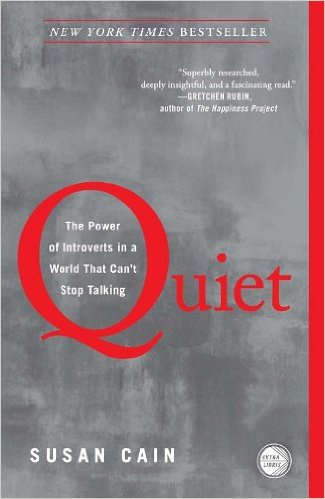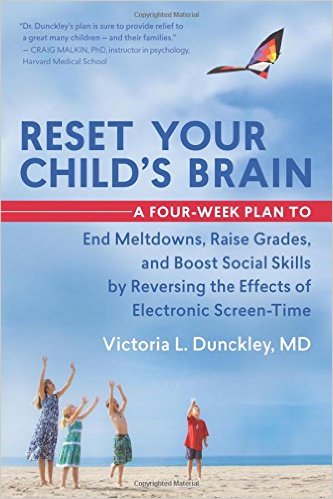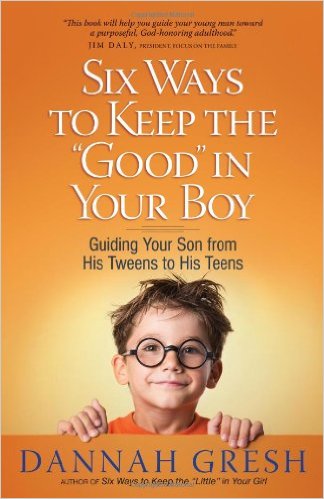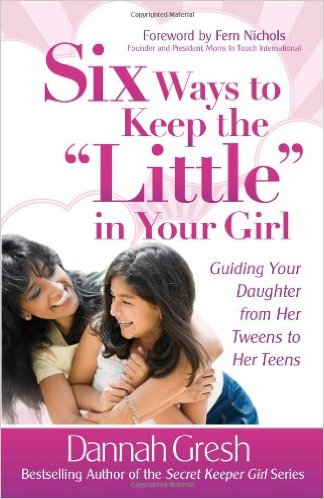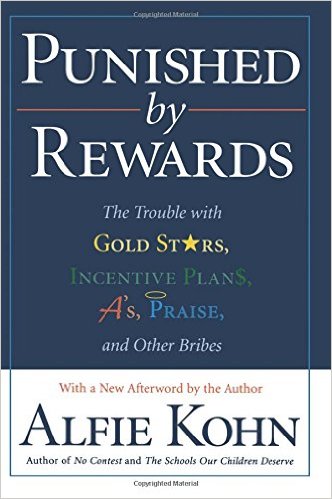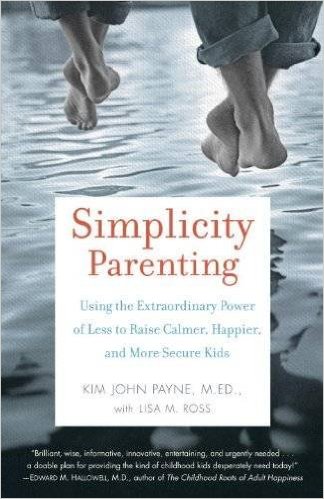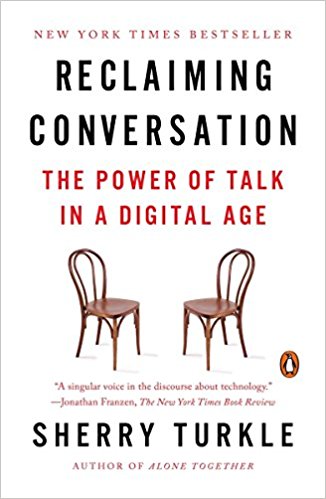
Carrington’s Reading List
As an avid reader, my nightstand is often buried under stacks of books—especially books about parenting and relationship. With so much advice available, it can be overwhelming to know which resources are truly valuable. That’s why I’ve curated this list of must-read parenting books that have had a meaningful impact on my journey.
These books have helped me navigate challenging parenting phases, provided valuable insights that influenced my approach, and offered practical strategies I’ve shared with other parents.
While I’ve read many more books than I can list here, this page is reserved for the true standouts—the ones that had me shouting “YES!” as I read them.
This list is updated as I discover new resources. If you have a book recommendation, feel free to reach out. For more on my parenting philosophy, visit my blog.
Quiet
By Susan Cain
Quiet is not written as a parenting book, but its implications for parents who are introverts as well as for parents of introverted children are vast. Quiet is a book about understanding introverts, which somewhat frustratingly is not clearly defined, but is more described by a tendency toward certain qualities--a preference for lower levels of stimulation; a tendency to approach work slowly, deliberately, and thoughtfully; a desire to put social energy into close friends and family with whom they can listen deeply and feel heard when they do speak. Cain shares from years of meticulous research regarding ways in which culture esteems and idolizes extroverts and their charismatic ways, yet still benefits greatly from those among us who are a bit quieter, prefer to work behind the scenes, and may prefer an existence of quiet contemplation to one of grabbing the spotlight. Cain thoroughly explains what it is to be an introvert, dispels myths so commonly held about those who prefer a cozy night at home to a late night social hour (hint: not all introverts are shy, nor are they anti-social or poor conversationalists), and does a beautiful job of sharing the advantages and strengths that introverts bring to the table both culturally and relationally. For parents, the insights in this book are helpful because so many kids today are enthusiastically encouraged to be leaders, team players, collaborative learners, and cooperative teammates. While these are all great things to aspire to, not every child is well suited to be the team captain, the class president, or the social chair. Quiet is a book that highlights the value of being thoughtful, cerebral, good at listening and writing, and more inclined toward peace and calm. As an introverted parent I felt encouraged and validated by Quiet; as a parent of introverted children I appreciated a new perspective on my kids' strengths and admirable qualities that are not always celebrated by the world.
Reset Your Child's Brain: a Four-Week Plan to end meltdowns, raise grades, and boost social skills by reversing the effects of Electronic screen-time
By Victoria Dunckley, M.D.
I don't think there is a more relevant, comprehensive, or timely book on the market than Dunckley's Reset Your Child's Brain when it comes to understanding the implications of raising kids in a technology inundated world or learning what to do about it. Dunckley spends the first few chapters of her book explaining a condition she has dubbed "Electronic Screen Syndrome (ESS)," which results from screen exposure in various forms but most specifically from interactive screen time (think computers, tablets, smartphones, video games, etc.) Dunckley methodically and carefully outlines the various ways that screen use affects the brains of children and adolescents and lists myriad symptoms of overexposure. Strikingly, these symptoms very often mimic those of diagnosable mental and behavioral disorders, which Dunckley highlights, pointing out the dramatic increase in diagnoses of a wide range of mental health disorders in children as well as the complicating effects of damaging screen time on top of underlying conditions. Also clearly discussed are the effects of screen use on children with no underlying health conditions, suggesting that no child is immune to the possible effects of growing up in a society awash in screens at home, school, and in the public square. Thankfully, after explaining the many potential problems of interactive screen time, Dunckley provides hope for recovery and healthy management with her four week reset plan, a deliberate technology "fast" designed to bring health and healing back to the technology saturated child or family. Dunckley presents how to do the reset, what to expect along the way, and how to move forward once the reset is complete. She pinpoints potential pitfalls, provides troubleshooting for resets that appear to be ineffective, and ultimately provides workable, effective, and free treatment to children and adolescents (and adults!) who would benefit from tackling technology overuse or abuse in their daily lives. Dunckley's tone is knowledgeable and compassionate, offering desperate parents hope and resistant children reassurance that a reset of technology habits need not be the end of the world, but may in fact help the world open up anew. Informative, easy to read, full of research and practical help, Reset Your Child's Brain is a must read for parents of any child struggling with behavioral issues, relationship difficulties, sleep disturbance, or preoccupation with screen technology and devices. It's also a must read for every parent raising children in a technology driven culture at large, whether or not symptoms are currently posing a problem. This book is a real gem in terms of education and practical application.
SIX WAYS TO KEEP THE "GOOD" IN YOUR BOY:
Guiding your son from his tweens to his teens
By Dannah Gresh
Guiding our kids to adolescence is no easy task, and for a mother guiding her son it can be even more mysterious. Having never experienced male adolescence ourselves, helping our sons can lead to a lot of confusion, frustration, misunderstandings, and awkward moments. Dannah Gresh's book Six Ways to Keep the "Good" in Your Boy addresses a mom's desire to help and guide her son by delivering a healthy does of education as well as several chapters of practical ways to address a boy's needs as he grows. Focusing her discussion on boys between 8 and 12 years old, Gresh covers such topics as changing hormones, methods of communication, cultural trends that might distract or harm our boys, and how to cultivate a strong mother son relationship in spite of the many changes. Gresh writes about the importance of getting boys to play outside, helping them cultivate healthy friendships, teaching them what to expect during puberty, and addressing the sometimes negative effects of a culture that no longer widely values chivalry and traditional male characteristics such as provision and protection. She gives suggestions on how to deal with aggressive girls, how to decide which conversations are for mom and which ones are for dad to handle, and what to do if you're a single mom walking this road without the help of a husband or partner. Gresh's book is a fairly quick read, is well-researched, and is packed with tools moms can put to good use right away with their tween sons. It is both eye-opening and full of hope, giving moms plenty to look forward to as their sons transition from being little boys to young men.
Six Ways to Keep the "Little" in Your Girl:
Guiding your daughter from her tweens to her teens
By Dannah Gresh
In Six Ways to Keep the "Little" in Your Girl, Gresh addresses many of the issues faced by young girls today that threaten their purity, their identity, and their their ability to grow into women of confidence and purpose. Gresh is well-researched, pragmatic in her approach but also empathetic in her tone as she equips mothers in particular to combat the negative messages surrounding our girls every day. Gresh offers practical advice on talking to your daughter about her period, about boys, about her body, about media messages and peer and cultural pressure, and about her future. She also helps mothers understand the importance of connecting with our daughters and offers practical ways to do it so that when girls begin to question who they are, experience physical changes, or hear about a friend cutting or experimenting with alcohol or messing around with boys, Mom is the one they go to with questions or for guidance. This book is geared toward mothers of tween girls, defined by Gresh as girls ages 8-12. I would recommend reading the book at the early end of the tween years or as early as when your girl is 7 so you can be prepared for what's ahead. But if you daughter is on the older end of the spectrum there is still much to be gleaned here. Six Ways opened my eyes to many challenges ahead, but also gave me hope and a sense of excitement about the tween years in which so much growth and maturation takes place. This book is a fairly quick read and will be valuable for reference throughout the tween and early teen years.
Punished by Rewards:
The trouble with gold stars, incentive plans, a's, Praise, and other bribes
By Alfie Kohn
This work by Alfie Kohn flips on its head everything we have culturally been conditioned to believe about the practical purposes of rewards and punishments. While we have come to accept, since the advent of behaviorism, that people perform a function more often when a good thing results and perform it less often when something bad happens, Kohn takes us deeper to question what is happening when we manipulate other people’s behavior, and how our efforts will likely, ultimately, backfire. Kohn takes seriously the question of motivation, asking provocative questions such as What is our right to influence the behavior or others? and How might we benefit from exploring beyond behaviors to asking why those behaviors happen, and how can we sustain positive and cooperative social engagement? Kohn contends that our use of external reinforcements (referred to as carrots and sticks) to encourage or discourage specific conduct in our schools, workplaces and in the home is largely ill-advised and counterproductive, producing desired outcomes for a while but simultaneously undermining a generation’s ability or interest in harnessing intrinsic motivation to reach new heights or find innovative solutions to problems. If you have ever wondered, as a parent, if you should use a reward chart to potty train your child, offer an allowance to encourage completion of chores, or give a prize for every A on the report card, you'll benefit from the wisdom in this book. Understand why the color chart your first grader’s teacher used to rate his behavior doesn’t seem to motivate him to improve, and why perhaps your own level of interest at work hasn’t deepened even after that recent raise. Kohn outlines what truly motivates and how we can encourage a love of learning and a desire for cooperation rather than coerce participation or begrudging compliance. Expertly researched and methodically thorough, Kohn’s writing is also accessible, engaging, and full of applicable anecdotes and real world stories to keep you turning page after page.
Simplicity Parenting
By Kim John Payne, m.ed., with Lisa M. Ross
In a world of constant noise, constant rush, and constant input and information, Simplicity Parenting is a call for parents to be conscious and intentional about the clutter we allow to infiltrate our lives and homes. Payne suggests that the complexities in our lives threaten the critical space and innocence characteristic of a healthy childhood, leaving our kids to grow up facing choices they are not equipped to face and grappling with issues they are not equipped to handle. Our kids are more busy, more anxious, and more stressed than we have ever seen before; Payne calls for slowing down and evaluating our priorities with our kids' health and development in mind. Payne addresses simplicity in all areas of life, including:
Environment - Clearing out excess material possessions to make space for appreciation, contentment, and creativity
Rhythms - Finding repeatable practices and traditions to provide much needed stability and predictability
Schedules - Determining the best use of time, including creating space for critical unstructured free play
Filtering out the Adult World - Being aware of the topics and concerns to which our children are exposed through media and adult conversations
Payne's style is familiar and warm, thoughtful and still challenging. He brings up issues not widely talked about, even in the more mainstream simplicity movement coverage, and provides a balanced, non-judgmental way of addressing the frenzy so many parents feel today.
Tears and Tantrums:
What to do When Babies and Children Cry
By Aletha J. Solter, PhD
Tears and Tantrums: What to do when Babies and Children Cry is an outstanding resource aimed at the parents of infants and toddlers, though the principles in the book address children all the way up through age 8. This book addresses perhaps the most pressing need for parents of little ones: What should we do when our babies, toddlers, or young children cry, rage, or throw tantrums? Dr. Solter is a developmental psychologist who has studied the physiological benefits of crying and raging (along with playing and laughing) as self-healing processes that allow babies and children to recover from stressful or traumatic experiences. And before you start thinking that your child has never been traumatized or has nothing to be stressed about, Dr. Solter points out that for infants and young children, stress and trauma can stem from many common sources, from the birth experience to physical discomfort to confusion and fear. The world is full of stimulation that leads to our little ones crying and reacting with distress. Dr. Solter’s sound understanding of the benefits of releasing stress through tears in the context of a loving parent/child bond will encourage the concerned parent who feels compelled to respond to their baby's crying and tantrums—even in the middle of the night or in a crowded grocery store—with compassion and reassurance. And in fact, not only does she encourage a gentle response, but teaches why crying itself ought to be appropriately encouraged. Dr. Solter is an advocate for babies and mothers alike, and her approach to handling children’s tears is a refreshing new perspective on a topic that often pigeon holes parents into restrictive camps of "crying it out" versus constant soothing and quieting. Tears and Tantrums deftly explains why crying need not be ignored nor soothed away, but how parents can respond appropriately and lovingly to their child in distress.
Reclaiming Conversation
By Sherry Turkle
Reclaiming Conversation is a book that challenges us to realize the value of face to face intimacy in a culture that increasingly seeks connection through electronics. Turkle looks at the particular elements of conversation that are lost when we take our correspondence online, and nudges us to reexamine our growing tendency to turn away from people as we turn toward machines. This cultural movement away from what is human toward what is digital has implications for all of us in the family, in the workplace, at school, and in the public square. Turkle skillfully causes us to see the benefits of face to face interaction, even those interactions that feel awkward, uncomfortable, or anxiety-inducing. We have the ability to edit and curate how we present ourselves online, but when we dare to converse in person we risk exposing a part of ourselves we have lost touch with or endeavor to hide. This exposure can be both liberating and frightening, but ultimately may lead to a more authentic way of living and moving in the world. Turkle suggests that for all we've lost in moving the bulk of our communications online, we are not beyond hope. "Conversation cures" is her mantra, and this book is an insightful, challenging, eye-opening revelation into what is happening with communication in our modern world and why it's worth the effort to hold on to the art of conversation.

